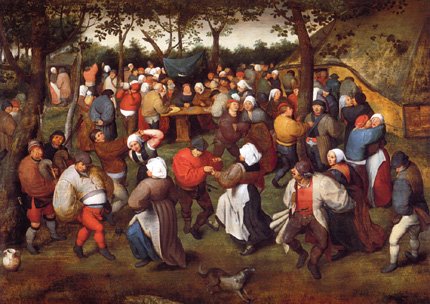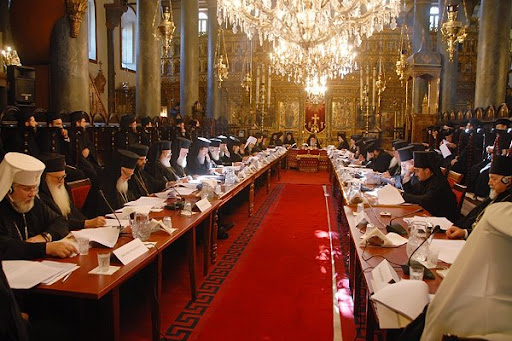"the babies of the world will just have to wait"
That is a line I came across recently, from a Christian dismissing the abortion issue in relation to this year's US presidential election.
Every year about 1,300,000 babies are aborted in the US. That's 5,200,000 babies over the next four years that won't get to "wait" -- they will be killed. The common reply is that neither candidate will make a difference with respect to the number of abortions. But that is simply not true. Obama promised a group of prominent abortion advocates that his "very first" act as President would be to sign the Freedom of Choice Act [FOCA] into law. [watch the video] The passing of FOCA would result in approximately 125,000 more abortions per year. [source]. Given that, how could any Christian justifiably vote for Obama? What good could Obama possibly bring as President that would justify the killing of an additional 125,000 babies per year?
To conceive this more clearly, imagine that if Obama were to win, 125,000 babies per year would be sacrificed publicly on an altar on the White House lawn. That's a rate of 342 babies killed per day, or 14 babies killed per hour, or one baby killed about every 4 minutes. Imagine that every 4 minutes during an Obama administration, for the next four years, a baby is killed on this altar. Are the promised benefits of an Obama administration worth killing a baby every 4 minutes around the clock, 24/7, for the next four years?
Even in purely utilitarian terms, if we set aside the intrinsic injustice of killing innocent persons, it is difficult to imagine any comparable, let alone outweighing, good that could possibly justify killing a baby every 4 minutes for the next four years. Therefore, there seems to be no moral justification for voting for Obama. Obama supporters must either (1) not be aware of the implications of FOCA, or (2) not be aware that abortion is the killing of an innocent human being (see here), or (3) think that the good that Obama would do as President would be worth killing a baby every four minutes for the next four years.
Bishop Finn of Kansas put it this way:
"[I]f we are inclined to vote for someone despite their pro-abortion stance, it seems we are morally obliged to establish a proportionate reason sufficient to justify the destruction of 45 million human persons through abortion. If we learn that our "candidate of choice" further pledges – through an instrument such as FOCA - to eliminate all existing limitations against abortion, it is that much more doubtful whether voting for him or her can ever be morally justified under any circumstance." (source)
Bishop Hermann of the Archdiocese of St. Louis had this to say: "More than anything else, this election is about saving our children or killing our children."
Cardinal Egan of New York says this: "[H]ave you any doubt that the authorities in a civilized society are duty-bound to protect this innocent human being if anyone were to wish to kill it?"
Bishop Farrell of Dallas and Bishop Vann of Fort Worth issued a Joint Statement on this subject. Here's an excerpt:
The only moral possibilities for a Catholic to be able to vote in good conscience for a candidate who supports this intrinsic evil are the following:
a. If both candidates running for office support abortion or "abortion rights," a Catholic would be forced to then look at the other important issues and through their vote try to limit the evil done; or,
b. If another intrinsic evil outweighs the evil of abortion. While this is sound moral reasoning, there are no "truly grave moral" or “proportionate” reasons, singularly or combined, that could outweigh the millions of innocent human lives that are directly killed by legal abortion each year.
To vote for a candidate who supports the intrinsic evil of abortion or "abortion rights" when there is a morally acceptable alternative would be to cooperate in the evil – and, therefore, morally impermissible.
Over one hundred US Catholic bishops have spoken out similarly. (source) Why is this issue so important? It is not only the saving of the lives of these 125,000 children per year. As I explained in my previous post on this subject titled "Finding Unity in Morality", all our rights depend on the right to life. "Without the right to life, no other right can be defended." (Fr. Zuhlsdorf).
Many of us have been working to protect unborn children for many years. Part of the fruit of that work has been the appointment of several Supreme Court justices who understand that the Constitution does not give anyone a right to kill unborn children. McCain said this: "I will look for people in the cast of John Roberts, Samuel Alito, and my friend the late William Rehnquist -- jurists of the highest caliber who know their own minds, and know the law, and know the difference". Obama, as Princeton Professor Robert George has succinctly argued here, has clearly demonstrated himself to be the most pro-abortion candidate this nation has ever known, explicitly ensuring he would select Supreme Court justices who retain Roe vs. Wade. We've worked too hard to get this close to overturning Roe vs. Wade. Now is not the time to slacken our effort. Obama is right on this point, that in this election, Roe vs. Wade "probably hangs in the balance". (source)
When I was growing up, I thought that the only way to change a society's moral consciousness was through religious conversion. Of course I understood that we needed laws, but I believed that laws merely prevented anarchy; in my mind, they definitely didn't change hearts. That is why I thought efforts to change our country by way of political means were a misguided waste of time. But later I came to see that my gnosticism had prevented me from seeing that it is not either/or, but both/and. Plato explains both in his Republic and in his Laws, that the laws of a society shape and train its citizens in their dispositions to act, their appetites, and in their conceptions of right and wrong. As parents by their discipline shape and form the moral habits and appetites of their children, so likewise do the laws of a nation shape the moral habits and appetites of its people. We change our society both by directly influencing the hearts and minds of our neighbors, and by selecting leaders who will enact and enforce a body of law that will also shape the moral habits and conscience of all citizens. It is not an either/or, but necessarily a both/and. We must not fail in our civic duty, by falsely assuming that society is changed and formed only by our conversations and relationships with our neighbors. Our neighbors' morals are also affected by how we vote, because the laws and policies enacted by political leaders shape and form the moral consciousness of a nation's citizens. And the laws that in recent years have been put in place to restrict abortion are making a difference.
Some people I talk with think that the government should not "legislate morality". They do not seem to understand that the government of any people has a necessary duty to protect and defend innocent human life, whether already born or not yet born. The obligation to protect innocent human life is not just a Christian obligation, but is known to reason and knowable by reason. (cf. Declaration on Procured Abortion, 8) Consider this selection from (Evangelium vitae, 71).
The real purpose of civil law is to guarantee an ordered social coexistence in true justice, so that all may "lead a quiet and peaceable life, godly and respectful in every way" (1 Tim 2:2). Precisely for this reason, civil law must ensure that all members of society enjoy respect for certain fundamental rights which innately belong to the person, rights which every positive law must recognize and guarantee. First and fundamental among these is the inviolable right to life of every innocent human being. While public authority can sometimes choose not to put a stop to something which-were it prohibited- would cause more serious harm, it can never presume to legitimize as a right of individuals-even if they are the majority of the members of society-an offence against other persons caused by the disregard of so fundamental a right as the right to life. The legal toleration of abortion or of euthanasia can in no way claim to be based on respect for the conscience of others, precisely because society has the right and the duty to protect itself against the abuses which can occur in the name of conscience and under the pretext of freedom.
May we not be known as the generation who decided that the "babies of the world will just have to wait". May their blood not be on our hands. Please do whatever is in your power to spread the word to everyone you know; the lives of 125,000 children a year depend on what we do right now. We are also praying a novena until next Tuesday; please pray hard. But don't just pray - pray and pass on the truth. We are our brother's keeper, even of those in the womb. They cannot speak on their own behalf; if we don't stand up for them and defend them, who will?
"Lord Jesus Christ, You told us to give to Caesar what belongs to Caesar, and to God what belongs to God. Enlighten the minds of our people [in] America. May we choose a President of the United States, and other government officials, according to Your Divine Will. Give our citizens the courage to choose leaders of our nation who respect the sanctity of unborn human life, the sanctity of marriage, the sanctity of marital relations, the sanctity of the family, and the sanctity of the aging. Grant us the wisdom to give You, what belongs to You, our God. If we do this, as a nation, we are confident You will give us an abundance of Your blessings through our elected leaders. Amen." [Fr. Hardon]













